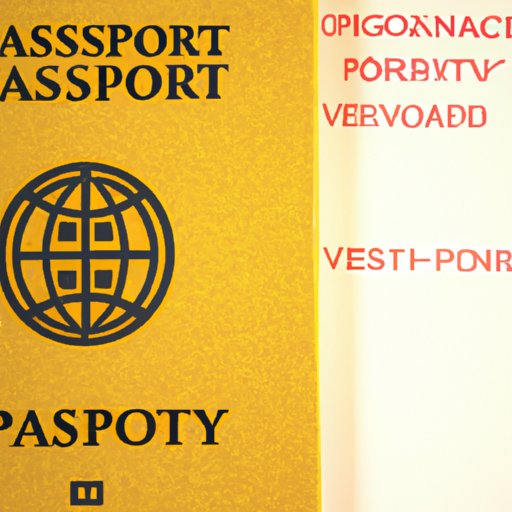Introduction
Vaccination passports are documents that allow individuals to prove they have been vaccinated against certain diseases or illnesses. With the rise of COVID-19, many countries are considering requiring travelers to provide proof of vaccination before being allowed to enter the country. This has raised questions about whether or not travelers need a vaccination passport in order to travel. In this article, we will explore the legality of vaccination passports for international travel, investigate whether you need one to travel, decipher the requirements for travelers, and compare vaccination passports with traditional vaccination certificates.

Examining the Legality of Vaccination Passports for International Travel
When it comes to the legality of vaccination passports, there is no universal agreement among countries. Some countries, such as Israel, have already implemented laws allowing them to require proof of vaccination for international travelers. Other countries, such as the United States, have yet to make a decision on the matter. To make matters more complicated, most countries have yet to agree upon standard regulations regarding the use of vaccination passports, leaving travelers unsure of what to expect when traveling.
It is important to understand the potential implications of requiring vaccination passports for international travel. One of the main concerns is the potential for discrimination based on an individual’s ability to obtain a vaccination. For example, some countries may require travelers to pay for their own vaccines, which could pose a financial barrier for some individuals. Additionally, there is the potential for countries to refuse entry to travelers based on their vaccination status, which could lead to unequal access to international travel.
Investigating Whether You Need a Vaccination Passport to Travel
The answer to this question depends largely on the country you are traveling to. As previously mentioned, some countries have already implemented laws requiring proof of vaccination for travelers. Other countries may not currently have any regulations in place but may implement them in the future. It is important to research the specific requirements of the country you are traveling to in order to determine if you need a vaccination passport.
In addition to researching the laws and regulations of the country you are traveling to, it is also important to explore different types of vaccination passports. Different countries may require different types of passports, such as digital passports or paper passports. It is important to familiarize yourself with these different types of passports and determine which one is required for your destination.

Deciphering the Requirements for Vaccination Passports for Travelers
Once you have determined whether or not you need a vaccination passport for your destination, it is important to understand the eligibility criteria associated with the passport. Generally speaking, you must have received the appropriate vaccinations in order to be eligible for a passport. Additionally, some countries may require additional documentation or proof of vaccination in order to receive a passport. It is important to review the specific requirements of the country you are traveling to in order to ensure you meet all eligibility criteria.
It is also important to consider the cost and time implications associated with obtaining a vaccination passport. Depending on the country you are traveling to, the cost of a passport can vary significantly. Additionally, some countries may require travelers to wait a certain amount of time after receiving the vaccinations before they are eligible for a passport. It is important to factor in these costs and timelines when planning your trip.

Comparing Vaccination Passports with Traditional Vaccination Certificates for Travel
It is important to understand the difference between vaccination passports and traditional vaccination certificates for travel. While both documents serve the same purpose—to prove that an individual has been vaccinated—each document has its own advantages and disadvantages. Vaccination passports are typically more secure than traditional certificates, as they often contain unique identifiers that are difficult to forge. Additionally, they are generally easier to store and transport than traditional certificates. On the other hand, traditional certificates may be easier to obtain, as they do not require an individual to meet certain eligibility criteria.
Conclusion
In conclusion, whether or not you need a vaccination passport to travel depends largely on the country you are traveling to. It is important to understand the legalities and requirements associated with vaccination passports, as well as the potential benefits and drawbacks. Additionally, it is important to compare vaccination passports with traditional vaccination certificates in order to determine which document is best suited for your needs. By understanding the various aspects of vaccination passports, you can make an informed decision about whether or not you need one for your travels.
(Note: Is this article not meeting your expectations? Do you have knowledge or insights to share? Unlock new opportunities and expand your reach by joining our authors team. Click Registration to join us and share your expertise with our readers.)
